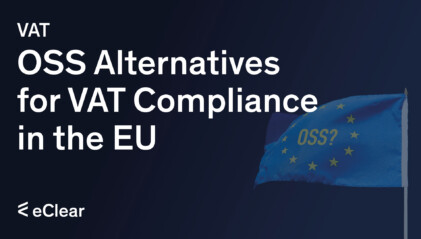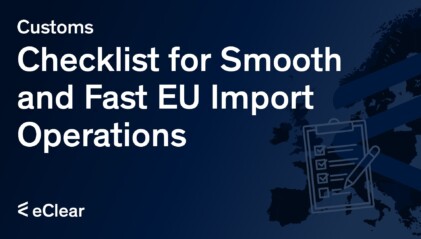About VAT in the Czech Republic
The Value-Added Tax (VAT or Daň z přidané hodnoty, DPH) was introduced in the Czech Republic in 1993 following the dissolution of Czechoslovakia. Since its inception, the VAT legislation has adapted to the changing economic environment and the country’s integration into the European Union.
In 2004, the Czech Republic joined the EU, significantly aligning its VAT system with the EU VAT Directives. This harmonization process ensured a consistent and transparent taxation framework for businesses operating across the European Single Market. The Czech VAT system continues to evolve, reflecting the latest amendments to EU VAT legislation and addressing the specific needs of the national economy.

VAT Rates
The Czech Republic’s VAT system comprises three different rates applicable to various goods and services. These rates are designed to accommodate the country’s economic and social priorities, ensuring a balanced tax burden on consumers and businesses.
Standard VAT Rate: 21% (Základní sazba)
This rate applies to most goods and services in the Czech Republic. It is levied on items not covered by the reduced rates, including but not limited to electronics, clothing, and most services.
Reduced VAT Rate: 12% (První snížená sazba)
As of January 1, 2024, the previous reduced rates of 15% and 10% have been consolidated into a single reduced rate of 12%. This rate applies to specific goods and services, such as:
- Foodstuffs (excluding most beverages)
- Certain medicines
- Printed materials like newspapers and magazines
- Public transportation
- Accommodation services
- Restaurant and catering services (excluding alcoholic beverages)
- Housing services
Zero VAT Rate
Books, which were previously subject to a reduced VAT rate, are now exempt from VAT entirely.
Reclassification of Items
Some items have been reclassified to the standard VAT rate of 21%. These include:
- Alcoholic beverages
- Draught beer
- Hairdressing services
- Artistic and author services
Penalties for Non-Compliance
Failure to submit VAT reports on time or provide incorrect or incomplete information may result in penalties. Fines may range from 0.05% to 5% of the undeclared or incorrectly declared VAT amount, depending on the severity of the violation. Late filing penalties may also apply, with a maximum of CZK 300,000.
VAT Exemptions
VAT exemptions in the Czech Republic refer to specific goods and services not subject to VAT. These exemptions alleviate the tax burden on essential services and activities contributing to the public interest.
Healthcare Services: Medical and dental care provided by licensed professionals, hospital care, and pharmaceutical supplies are exempt from VAT.
Education Services: Educational services provided by public and private institutions, such as schools, universities, and vocational training centres, are exempt from VAT.
Financial and Insurance Services: Banking, financial, and insurance services are exempt from VAT due to the unique nature of these services and the difficulty of calculating the value added.
Non-profit Activities: Certain non-profit activities, such as those conducted by charitable organizations, religious institutions, and cultural organizations, are exempt from VAT to support their contributions to society.
Real Estate Transactions: Some real estate transactions, such as leasing and rental of residential properties, are exempt from VAT to promote housing affordability and stability in the market.
VAT Registration
In the Czech Republic, businesses must register for VAT under specific circumstances. The registration process varies for domestic and foreign companies, and there are provisions for VAT group registration.
Threshold for VAT Registration
Businesses with a taxable turnover exceeding CZK 1,000,000 within twelve consecutive months must register for VAT. Once the threshold is reached, businesses must register within 15 days.
Voluntary Registration
Businesses with a taxable turnover below the threshold can voluntarily register for VAT. This option may benefit businesses wishing to reclaim input VAT or anticipate crossing the threshold soon.
Registration Process for Domestic and Foreign Businesses
Domestic businesses can register for VAT by submitting a registration form to the local tax office. Foreign companies without a fixed establishment in the Czech Republic must appoint a tax representative to manage their VAT registration and compliance.
VAT Group Registration
Businesses closely related in ownership and control may opt for VAT group registration. This allows the group to file a single VAT return and simplifies the administrative process. However, all members of the VAT group become jointly and severally liable for the group’s VAT obligations.
VAT Compliance
Record-Keeping Requirements
Businesses registered for VAT must maintain accurate and complete records of their taxable transactions, including invoices, credit notes, and other relevant documents. These records must be retained for at least ten years, as they may be subject to inspection by the tax authorities.
VAT Returns
VAT-registered businesses must submit periodic VAT returns, declaring their output VAT and input VAT for a specific period. VAT returns are filed quarterly, but firms with an annual turnover exceeding CZK 10,000,000 must file monthly returns. The deadline for submitting a VAT return is the 25th day following the end of the reporting period. Businesses also have the option to file an annual VAT return, provided certain conditions are met.
Correcting Errors in VAT Returns
If a business identifies errors in its VAT return, it must submit a corrected return as soon as possible. Errors with a net tax difference of up to CZK 10,000 can be fixed in the next VAT return. However, if the net tax difference exceeds CZK 10,000, a separate corrective VAT return must be submitted within 30 days of discovering the error.
Input Tax Refund
The input tax refund is an essential aspect of the VAT system in the Czech Republic, allowing businesses to recover the VAT they have paid on eligible purchases and expenses.
Input tax (vstupní DPH) refers to the VAT paid by a business on goods or services purchased for use in its taxable activities. This includes VAT on raw materials, capital goods, and other expenses related to the business.
Conditions for Claiming Input Tax Refund
- The purchased goods or services are used for taxable activities.
- The company holds a valid VAT invoice for the purchase.
- The input tax has yet to be claimed in a previous VAT return.
Process for Claiming Input Tax Refund
Businesses can claim input tax refunds by deducting the eligible input tax from their output tax in their VAT return. The difference between output and input taxes will determine the net VAT payable or refundable for the reporting period. Suppose the input tax exceeds the output tax. In that case, the business may receive a refund, subject to certain conditions and approval from the tax authorities.
For more information on input tax refunds in the Czech Republic, visit the official Czech Financial Administration website at https://www.financnisprava.cz/.
B2B & B2C Deliveries of Goods
B2B (business-to-business) and B2C (business-to-consumer) transactions involve delivering goods within the Czech Republic and across borders. Different VAT rules apply to domestic and cross-border transactions and specific e-commerce and digital services regulations.
VAT Rules for Domestic and Cross-Border Transactions
Domestic transactions within the Czech Republic are subject to the applicable VAT rate (21%, 15%, or 10%).
The reverse-charge mechanism applies in B2B cross-border transactions within the EU, shifting the VAT liability to the buyer.
B2C cross-border transactions within the EU are taxed at the VAT rate of the seller’s country. Still, distance-selling rules may apply when certain thresholds are exceeded. For goods imported from non-EU countries, import VAT is levied at the point of entry.
Special Rules for E-commerce and Digital Services
For B2C transactions involving digital services provided by non-EU businesses to consumers in the Czech Republic, the company must register for VAT in the Czech Republic and charge local VAT. The One-Stop Shop (OSS) scheme simplifies the VAT registration and reporting process for digital service providers in the EU.
Invoicing
Invoicing is essential to conducting business in the Czech Republic. It records transactions and enables companies to comply with VAT requirements. Invoices are issued for both B2B and B2C transactions and must contain specific information.
While B2B and B2C transactions require invoicing, the detail and information needed on the invoices may differ. B2B invoices typically include more information, such as the buyer’s VAT identification number and a clear indication of the reverse-charge mechanism when applicable.
VAT invoices are a vital record of transactions subject to VAT. They enable businesses to claim input tax, demonstrate VAT compliance, and facilitate audits by tax authorities.
Required Information on VAT Invoices
VAT invoices must include the following information:
- Seller’s and buyer’s name and address
- Seller’s VAT identification number (DIČ)
- Buyer’s VAT identification number for B2B transactions
- Unique invoice number
- Date of issue and the tax point
- Description of goods or services provided
- Quantity and unit price of goods or services
- Applicable VAT rate(s) and the VAT amount(s)
- Total amount payable, excluding and including VAT
- Period for Issuing Invoices
Invoices must be issued within 15 days of the tax point (the date when goods are delivered, or services are performed). For continuous supplies, invoices should be issued by the 15th day of the month following the month in which the tax point occurs.
For more information on invoicing in the Czech Republic, visit the official Czech Financial Administration website at https://www.financnisprava.cz/.
E-invoicing
E-invoicing is permitted but not mandatory in the Czech Republic. The initially planned Electronic Registration of Sales (ERS) was abolished in 2022 due to decreasing cash transactions. Taxpayers can report sales data voluntarily until December 31, 2023.
For B2G transactions, electronic invoices following the European standard for e-invoicing must be accepted. Contracting authorities must accept them based on format. Business entities may accept e-invoices upon explicit approval.
There are no specific penalties for non-adherence to e-invoicing mandates in Czechia. The e-invoicing process involves sending an XML data message to the Financial Authority, receiving a Fiscal Identification Code (FIK), issuing a receipt with the FIK, and registering the sale.
The Czech Republic has not implemented the Standard Audit File for Tax (SAF-T) requirement.
VAT Reporting
VAT reporting is crucial for businesses in the Czech Republic to ensure compliance with VAT regulations. Various reports must be submitted within specific deadlines, and penalties may be imposed for non-compliance.
Types of Reporting, Frequency and Deadlines
VAT Returns:
- Periodic declarations of VAT liabilities and input tax credits.
- Monthly reporting for businesses with an annual turnover exceeding CZK 10 million, or quarterly for companies with a lower turnover.
- The deadline for submission is the 25th day of the month following the reporting period.
EC Sales List:
- A summary of cross-border B2B transactions within the EU, including goods and services.
- Monthly reporting for businesses supplying goods or services to other EU member states.
- The deadline for submission is the 25th day of the month following the reporting period.
Intrastat:
- Statistical reports on the movement of goods between EU member states.
- Monthly reporting for businesses exceeding specific thresholds in intra-EU trade.
The deadline for submission is the 12th working day of the month following the reporting period.






